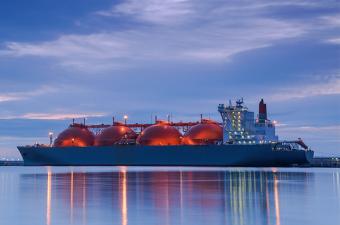
OVERVIEW
2020 has witnessed a dramatic fall in energy prices as the world has adjusted its needs and demands in the wake of the coronavirus pandemic. Brent crude oil prices plummeted from around US$70 per barrel at the start of the year to an 18-year low of US$22 by the end of the first quarter of 2020, while the JCC price has almost halved during the same period. This week, US crude oil future deliveries for May commanded negative prices for the first time in history (see article). Meanwhile, European hub prices for natural gas and prices of liquified natural gas for delivery to Asia (“Asian LNG”) have fallen to all-time lows.
It is reasonable to anticipate that these developments may trigger discussions between buyers and sellers under long-term contracts for Asian LNG. In this article we consider the key contractual considerations for market participants dealing with the volatile economic dynamics caused by these unexpected market disruptions and the issues that are likely to arise for resolution, either consensually or in arbitration.
The Contracts
Long-term Asian LNG contracts typically have a term of between 15 and 25 years from execution or first cargo deliveries and can involve the delivery of many dozens of cargoes each year. Accordingly, the smallest disparity between the purchase price of gas under the contract, and the price of gas in the market where it will eventually be sold, can significantly affect a buyer’s margins and quickly cause the contract price to fail to resemble the commercial bargain initially struck by the parties.
To minimise the risk of this happening, the pricing provisions in these contracts typically contain one form of indexation or another to a price benchmark considered by the parties at the time of contracting to bear a close relationship to the value of gas to be sold under the contract. In Asian LNG contracts, the price is frequently indexed to local or international crude oil prices as a broad indicator of energy prices, such as a form of the Japanese Customs-cleared Crude price. As such, as the oil price fluctuates each month, so does the price to be paid for gas delivered under the contract.
But what happens when the benchmark fails – temporarily or otherwise – to reflect the value of gas being sold under the contract?
Unless extreme price shocks are properly reflected in the contract price, the impact can be devastating with the potential to impact the buyer’s viability if left unchecked. The ability to make adjustments to the pricing provisions on a more sustained basis takes on particular significance in this scenario, and depends on the existence and effectiveness of the price review clause in the contract. At the same time, if a price shock is only temporary, then it is quite arguable that it should not result in a potentially permanent adjustment of the prevailing contract price and structure.
As with any term in any carefully negotiated contract, language is key. It is the clearest and closest indicator available to understand what the parties intended to be up for negotiation and potential revision, and under what circumstances.
The following central issues may arise when it comes to interpreting the price review clause and how it interfaces with the economic situation the parties are dealing with:
-
Is the price review clause really a price review clause? Given the centrality of the contract price, the ability to amend it is a crucially important contract mechanism. As such, it will usually be clearly identified as such by the parties. They will often do this by labelling it a “price review” clause and situating it close to the pricing provisions in the contract, as well as stipulating with as much foresight as possible under what circumstances it may be triggered. The clause will usually also provide in clear terms the how the revision is to be negotiated and resolved in practice. Such clauses thus fall to be distinguished from economic hardship clauses, whether incorporated contractually or by implication through, for example, a commercial code in the relevant governing law.
-
Is the clause enforceable? In other words, what happens if the party presented with a price revision request refuses to negotiate? In the past, Asian LNG contracts frequently made provision for the parties to “discuss” a price review under certain circumstances, but without providing clarity as to what would happen in the event that a party refused to meet, or refused to agree on a revision. More clarity features in the current generation of Asian LNG contracts, but again, the words used by the parties in their price revision clause are key to understanding whether or not the parties intended the price review to be referred to a third party to determine and order a new contract price – usually an arbitral tribunal – in the absence of negotiations or agreement.
-
What trigger(s) must be met in order for a party to be able to seek a revision? A revision of the contract price is not an exercise to be undertaken lightly. As such, price review clauses usually provide for a periodic requirement, prior to which a request for a review will effectively be inadmissible – commonly 3 to 5 years since the last review – as well as a substantive requirement, for example a substantial misalignment with the contract price and the price of cargoes under other regional LNG contracts, to the extent known.
-
Assuming a review clause is enforceable and the triggers for a review are met, which elements of the contract price can be revised and on what basis? This substantive area of the review provides fertile ground for debate, and thus unfortunately uncertainty and risk in any price review process. Does the review clause entitle the parties to adjust the price level only? The treatment of the benchmark and indexation to it? Or can the parties go much further and rewrite the price clause to reflect the relevant changes since the price was last set? What are the relevant changes to be reflected in the revised contract price – those that enabled it to be triggered in the first place, or something else?
-
Who may refer the price review to arbitration? Once a price review has been triggered, can either party refer the matter to arbitration for determination, or just the party who initially triggered the review? It is frequently the case that price review negotiations break down because in the course of the discussions that follow a trigger notice, each party then analyses the economic position in detail and with the assistance of external experts to prepare for negotiations and forms a clearer view on precisely what the outcome of the price review should be. If the non-triggering party believes it is entitled to an adjustment in its favour, is it precluded from submitting the price review to arbitration?
Critically important to the outcome of any price review is precisely what the relevant economic events are that have taken place during the “reference period” (or “review period” as it is often called), i.e. the period since the contract price was last set, that need to be reflected in the revised contract price in order for the original bargain to be restored.
The Economics
Asian spot LNG prices reached record lows of around $2.30 per mmBtu on average in the first week of April 2020 (see article), down from around $5.40 per mmBtu around the same time last year (see article). According to Wood Mackenzie last month, “An already oversupplied LNG market comes out of a mild winter with high inventories across Europe and Asia, only to face a global pandemic which has already destroyed gas demand across China and looks increasingly set to do the same across the Asia Pacific and Europe” (see article). According to Rystad Energy, “it will take years before the [coronavirus’] effect fully dissipates” (see article).
Buyers whose supply contracts and customer portfolios enable them to make deliveries outside Asia are thus unlikely to face respite, given the absence of alternative destinations and markets elsewhere in the world into which to sell cargoes on a sustainable basis.
At the same time, Asian buyers’ supply contracts remain predominantly indexed to crude oil prices. Typically, this will be the price of the product as quoted anywhere from around three to six months prior to the LNG cargo delivery date and may be the calculated price itself or an average of the calculated price over the three to six-month period. Either way, the indexed price forming the basis of the LNG invoice price to be paid to the seller will predate the actual delivery by a considerable period. As such, while both oil and gas prices have collapsed, it is easy to see how a contract price based on market developments that had occurred several months earlier in relation to another product can result in significant risk for a buyer selling gas to customers in competition with spot prices that do not reflect the crude oil-price lag. While buyers might take steps to reduce the impact of the volatility they currently face by reducing their take obligations as much as possible, they will nevertheless be obliged to take the minimum quantities prescribed in their supply contracts.
In addition to these considerations, the structural effects of the pandemic – namely the apparent exacerbation of already existing oversupply and reduced demand – themselves present further causes of volatility which arguably fall to be distinguished in the resolution of any price review from the contractual and financial disruption resulting more generally from falling energy prices.
The Issues
Buyers and sellers of Asian LNG thus currently find themselves in the eye of the storm as uncertainty reigns in relation to the future development of the global pandemic and the effect it will have on an already disrupted balance of global supply and demand. The only thing that is becoming increasingly clear is that the impact will be felt now and for some period to come – even assuming there will be a successful stabilisation of the global population’s health security leading to a return to a recognisable form of global energy market dynamics.
Will these market disruptions give rise to price review negotiations and arbitrations? Applying the economics to the contracts, a number of issues are likely to present themselves and require resolution consensually or through arbitration, including the following:
- Does a divergence between the oil-linked price in the long term sale agreement and the spot prices in Asian markets entitle a buyer to trigger a review? As noted above, this will depend on whether or not the contract in question can be interpreted in this way. For example, does the contract simply provide for a periodic review of the price, which should reflect “prevailing” or “then-current” market conditions at that point in time? Or does the review clause require a more enduring change of market circumstances, implying that a price shock lasting, say, less than a year might not provide a sufficient basis for revision of the contract price? There will always be a margin of appreciation for the parties and / or tribunal to take into account in making this determination.
- What role do other supply contracts within the region play in the review? Specifically, does the contract require the parties to base any revised price on other reported landed prices within the Asia Pacific region, or are the parties directed to take account of and give greater weight to downstream market dynamics? More generally, what are the appropriate reference points and appropriate weighting to be applied in calculating a reference price? How should the parties weigh, for example, Brunei, Singapore or Australian or Malaysian landed LNG prices and volumes against Chinese city-gate prices and volumes? Depending on a particular country, region or province’s response to the coronavirus and the fluctuations in energy demand that have resulted, it is quite possible that the appropriate weighting of regional prices and volumes could be decisive to any price review outcome.
- What role does “hardship” or “economic disadvantage” play in the process, if any? Assuming the price review clause or governing law of the contract allow for such considerations to be taken into account, does this mean that the buyer’s margin should not go below a certain point, or is it a reference to losses on a sustained and structural basis? Market participants who have been involved in price review negotiations in Western Europe over the last decade or so will be familiar with these concepts and the range of arguments available, and the relevance (if it is relevant at all) of the buyer’s ability to “economically market” the gas it purchases under the contract. What efforts are required of the buyer when it comes to marketing the gas it purchases, in the scenario where a global pandemic has affected its operations to a greater or lesser extent?
- Is this the first price review under the contract, or has there been one already? Asian LNG contracts normally stipulate a certain initial period – usually four or five years from the commercial start date – prior to which there will be no price reviews. Thereafter, price reviews are likely to be available in four or five year periods up to the expiry of the contract. As such, it is entirely conceivable that the parties may find themselves locked in a second price review within the first decade of the contract’s term. Did the earlier tribunal make legal determinations, for example in relation to the proper interpretation and operation of the price review clause, that bind subsequent tribunals? Or are those determinations merely persuasive? The answer to this important question may – unexpectedly for the commercial parties to the negotiations – turn on the parties’ choice of arbitral seat. Are either of the parties taking a position in the current price review that is inconsistent with their position in the first one – for example, in relation to the necessary extent and duration of the price shock that forms the basis of the review? Again, legal questions of good faith and estoppel may come into play depending on the parties’ contractual choice of governing law.
- Has a party invoked any other provision of the contract, not commonly dealt with in price review negotiations and arbitrations? For example, a force majeure notice based on the effects of the coronavirus pandemic resulting in a seller’s inability to supply LNG cargoes; or a buyer’s inability to deliver to its destination market? If so, the parties will need to take additional care to ensure that the economic effects of the force majeure and the price revision are dealt with consistently and in a manner that enables them to move forward operationally speaking, avoiding the risk of them having to renegotiate weeks or months later if the impediment to supply cargoes, or ability to receive them, remains ongoing.
Prudent parties will seek to find negotiated solutions to the issue – perhaps by forgiving take or pay obligations and crediting them for the future; or introducing additional volume or destination flexibility to the extent that might unlock any obstacles to a mutually beneficial compromise. The benefit of such consensually agreed solutions is that the parties remain in control of the revised bargain, including in relation to its timing and form.
The important point is that these solutions will not be available if the parties resort to arbitration. At that point, the tribunal’s mandate will be to apply the language of the price review clause in light of the relevant events that have taken place, in order to determine an appropriate price reference for the review and thus an appropriate revised contract price. In the current environment, due consideration should be given to the nature of factual and expert evidence to be tendered, which may go significantly beyond mere economic data for the review period and require the parties to chart new territory, namely in relation to the operational disruption caused to a buyer’s operations by the global pandemic, and the reasonableness of its actions in that context.
Related News
Urgent remedies in uncertain times: A guide to injunctive relief during the Coronavirus lockdown
Who bears the pain? Establishing the Claim - Nigel Cooper QC & Stephanie Barrett
COVID-19: What are the implications for shipping disputes? - John Russell QC, Ben Gardner & Tom Bird
The impact of Covid-19 on the energy & natural resources sector - Chris Smith QC


